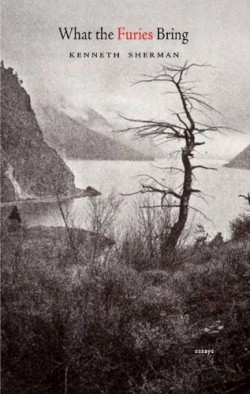What the Furies Bring
- 2009 INDIES Winner
- Silver, Essays (Adult Nonfiction)
Following the terrorist attacks of September 11, 2001, Canadian poet and literary critic Kenneth Sherman asked himself what the response of literature to such traumatizing events should be. For guidance, he turned to writers who had addressed the most horrific experiences of the 20th century, including the Holocaust and the Soviet Gulag. In this collection of essays, Sherman analyzes with care and precision some of the best such writers, including both well- and lesser-known figures.
While Sherman’s subjects represent a wide variety of artistic and moral positions, certain themes recur. Throughout the book, Sherman questions the value of “art for art’s sake,” and posits that great literature must grapple with the issues of its time. “Reality bombards the modern writer and it is reasonable to feel overwhelmed,” he acknowledges in the preface. “Yet the true writer—not the propagandist and not the giddy experimenter—is engaged in a difficult dialogue with the real.”
All of the writers Sherman investigates fall into this category. But in their struggle to articulate experiences that seem beyond the reach of language, each of them employed their own methods. While some responded with genre-bending inventions, others retreated to the austerity of classical forms.
Jewish-Soviet writer Vasily Grossman was one of the first to describe the full horror of the Holocaust. In his seminal work, “The Hell of Treblinka” he melded aspects of fiction and journalism, anticipating the New Journalism of American writers by several decades. Other authors attempted even more radical innovations. Varlam Shalamov, a Russian poet who spent seventeen years as a Soviet political prisoner, wrote that he wished to “write something that would not be literature,” and Sherman describes his work as “a sort of documentary fiction, fixed in historical experience but transcending history through poetic device.”
Other writers, however, felt that they could only do justice to the horrors they had witnessed with clear and straightforward prose. The most significant of these authors is Primo Levi, whose detached descriptions of concentration camps remain some of the most powerful portrayals of the Holocaust.
In the course of these essays, Sherman grapples with the famous statement of the philosopher Theodor Adorno: “After Auschwitz it is barbaric to write poetry.” Yet nearly all of the authors he examines continued to write, and even felt that it was their duty to express their experience as best they could. And indeed, upon studying these heroic efforts, Sherman reaches the same conclusion: “After Auschwitz,” he declares, “it is necessary to write poetry.”
Review Date: February 2010.
Disclosure: This article is not an endorsement, but a review. The publisher of this book provided free copies of the book and paid a small fee to have their book reviewed by a professional reviewer. Foreword Reviews and Clarion Reviews make no guarantee that the publisher will receive a positive review. Foreword Magazine, Inc. is disclosing this in accordance with the Federal Trade Commission’s 16 CFR, Part 255.

